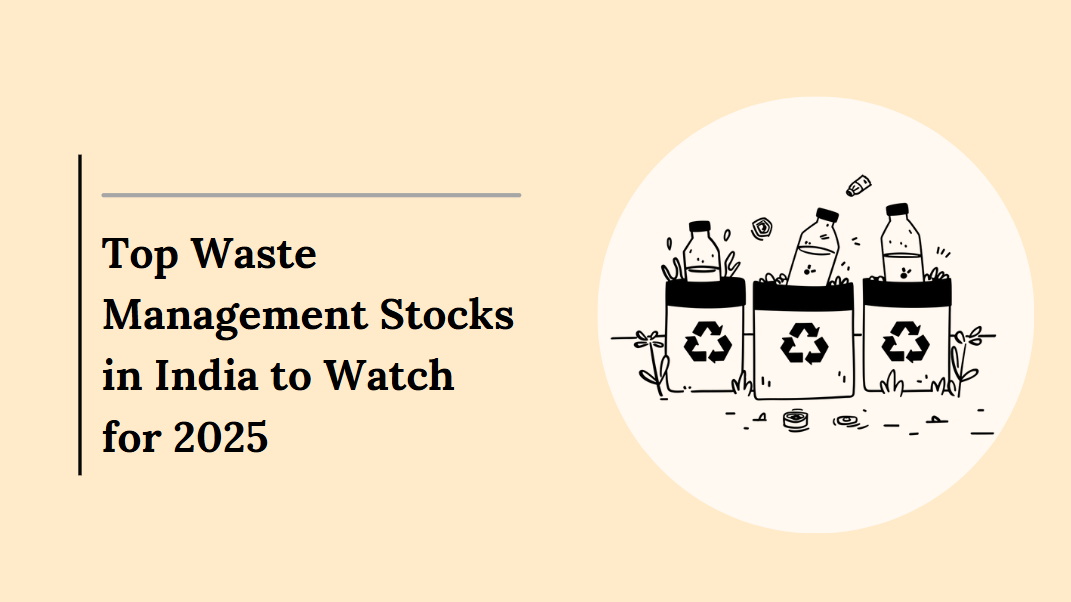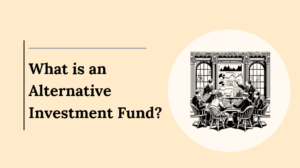Why Waste Management Stocks Are a Hot Investment in India
As urban populations and industries grow, waste management has become a critical component for a sustainable future. India ranks as the third-largest waste generator worldwide, producing around 62 million tons annually.
Major cities such as Mumbai and Delhi generate between 8,000 to 9,000 tons of waste daily—an amount equivalent to the weight of 1,500 adult elephants. Yet, most of this waste, around 80-90%, remains untreated, polluting landfills and oceans.
The Indian waste management market is currently valued at approximately USD 12.9 billion, with an estimated compound annual growth rate (CAGR) of 6.1% from 2024 to 2029. This fast-growing sector offers a unique opportunity for investors looking to tap into both financial gains and sustainable practices.
With a rise in advanced recycling technologies, several Indian companies are transforming waste into valuable resources, making this sector a hotbed for innovative investments.
Let’s explore some of the most promising waste management stocks in India for 2024 that offer both environmental impact and solid financial returns.
| Company Name | Market Price (₹) | Market Cap (₹ Cr.) | P/E Ratio (TTM) |
|---|---|---|---|
| Gravita India Ltd | ~ 1,410.80 | 14,108 | 51.55 |
| Eco Recycling Ltd | ~ 405.50 | 1,729 | 82.05 |
| JITF Infra Logistics | ~ 1,863.50 | 1,788 | 29.75 |
| Ion Exchange (India) Ltd | ~ 1,070.00 | 9,318 | 36.20 |
1. Gravita India Ltd
Gravita India Ltd leads the way in recycling materials like lead, aluminum, plastic, and rubber. With over 11 manufacturing plants worldwide and a recycling capacity exceeding 302,859 metric tons annually, Gravita has cemented its position as a global leader. The company offers turnkey recycling solutions and operates more than 31 scrap yards across various locations, reaching over 1,700 global touchpoints.
Gravita is now exploring new sectors, including lithium and steel recycling, setting the stage for future growth. Its strategic expansion into these high-potential markets presents an excellent opportunity for investors. As demand for sustainable recycling solutions rises, Gravita’s robust business model ensures a competitive edge.
| Pros | Cons |
|---|---|
| Strong global presence with 31+ scrap yards and over 1,700 touchpoints | Heavy reliance on international markets makes it vulnerable to currency fluctuations |
| Expanding into high-growth verticals like lithium and steel | Increasing operational complexity with new verticals |
| Proven expertise in end-to-end recycling solutions | Competition from other international recycling companies |
2. Eco Recycling Ltd (Ecoreco)
Eco Recycling Ltd, commonly known as Ecoreco, is a pioneer in India’s e-waste management sector. The company offers comprehensive services, including reverse logistics, IT asset disposition (ITAD), data destruction, and precious metal recovery. Leveraging advanced technologies from the US, Europe, and Japan, Ecoreco operates state-of-the-art facilities in Mumbai with a combined recycling capacity of over 25,200 metric tons per year.
The company plans to expand this capacity by 18,000 metric tons in 2024 with an investment of ₹50 crore. Additionally, Ecoreco’s user-friendly “Book My Junk” app simplifies e-waste collection, enhancing customer convenience.
With the global e-waste market expected to reach $244.6 billion by 2032, growing at a CAGR of 15.7%, Ecoreco’s strategic positioning makes it a compelling stock for future returns.
| Pros | Cons |
|---|---|
| Offers innovative solutions like the “Book My Junk” app for waste collection | High capital investment required for expansion |
| Advanced recycling technology ensures high recovery efficiency | Subject to e-waste regulations and compliance costs |
| Positioned to expand capacity by 18,000 MTPA in 2024 | Vulnerable to changes in global demand for electronic products |
Also Read: Top 10 Growth Stocks in India For 2025
3. JITF Infra Logistics Ltd
A key player under the O.P. Jindal Group, JITF Infra Logistics Ltd operates at the intersection of waste management and urban infrastructure. Its subsidiary, JITF Urban Infrastructure Ltd (JUIL), leads India’s waste-to-energy initiatives, managing plants with a total capacity of 111 MW across cities like Delhi and Ahmedabad.
Additionally, the company’s water treatment subsidiary, JWIL Infra Ltd, addresses India’s critical water quality challenges. The water treatment sector in India is projected to grow from USD 1.02 billion in 2024 to USD 1.71 billion by 2029, with a CAGR of 10.78%. JITF’s dual focus on waste-to-energy and water management positions it to capture substantial market share, making it an attractive option for long-term investors.
| Pros | Cons |
|---|---|
| Strong backing from the O.P. Jindal Group ensures financial stability | High dependence on government policies for waste-to-energy projects |
| Focus on both waste-to-energy and water treatment sectors offers diversified revenue streams | Requires significant capital investments for plant expansions |
| Positioned well to benefit from the growing water treatment market, projected to reach USD 1.71 billion by 2029 | Regulatory challenges and delays in project execution may affect growth |
4. Ion Exchange (India) Ltd
Ion Exchange (India) Ltd is well known for its innovative water purifiers, including alkaline and hydrogen-based solutions. As the residential water purifier market in India is expected to grow at a CAGR of 16.34% from 2024 to 2030, Ion Exchange stands poised to benefit. Beyond water purification, the company also provides advanced waste management solutions, including zero-liquid discharge and wastewater recycling services.
With over 100,000 installations worldwide and a strong order book valued at approximately ₹3,400 crore, Ion Exchange is well-positioned for growth. The company’s diversified offerings across water and waste management services provide multiple revenue streams, making it an appealing choice for investors seeking stability and growth.
| Pros | Cons |
|---|---|
| Strong presence in the growing water purifier market | High competition from other water purification brands |
| Diverse revenue streams from water treatment, recycling, and wastewater management | Profit margins may shrink due to rising input costs |
| Well-established with a global footprint and a large order pipeline | Vulnerable to fluctuations in demand for industrial water solutions |
Also Read: Top 10 Solar Energy Stocks in India
Why Invest in India’s Waste Management Sector?
India’s waste management industry offers a unique blend of environmental responsibility and financial opportunity.
As the government tightens regulations on waste disposal and promotes recycling, companies with innovative solutions are poised to benefit. Waste-to-energy plants, e-waste management, and water treatment services are rapidly gaining traction, creating multiple avenues for growth.
By investing in companies such as Gravita India, Eco Recycling, JITF Infra Logistics, and Ion Exchange, investors can tap into a sector that not only supports sustainability but also promises strong returns.
The growing need for efficient waste solutions and supportive government policies further amplify the investment potential in this industry.
Conclusion
The waste management sector in India represents an exciting investment opportunity as the country grapples with increasing waste and environmental challenges. Companies like Gravita India, Eco Recycling, JITF Infra Logistics, and Ion Exchange are leading the charge by converting waste into valuable resources and developing sustainable infrastructure solutions.
These businesses not only contribute to a cleaner environment but also provide investors with the potential for significant financial returns. With sectors such as waste-to-energy and water management set for substantial growth, investing in these companies aligns with both ethical and financial goals. For investors looking to capitalize on the evolving waste management landscape, these stocks are worth a close look.
Also Read: Top 10 Highest Dividend Paying Stocks in India for 2025
Disclaimer: This article is for informational purposes only and should not be considered financial advice. Investing involves risks, and it is essential to conduct thorough research or consult with a financial advisor before making any investment decisions.











